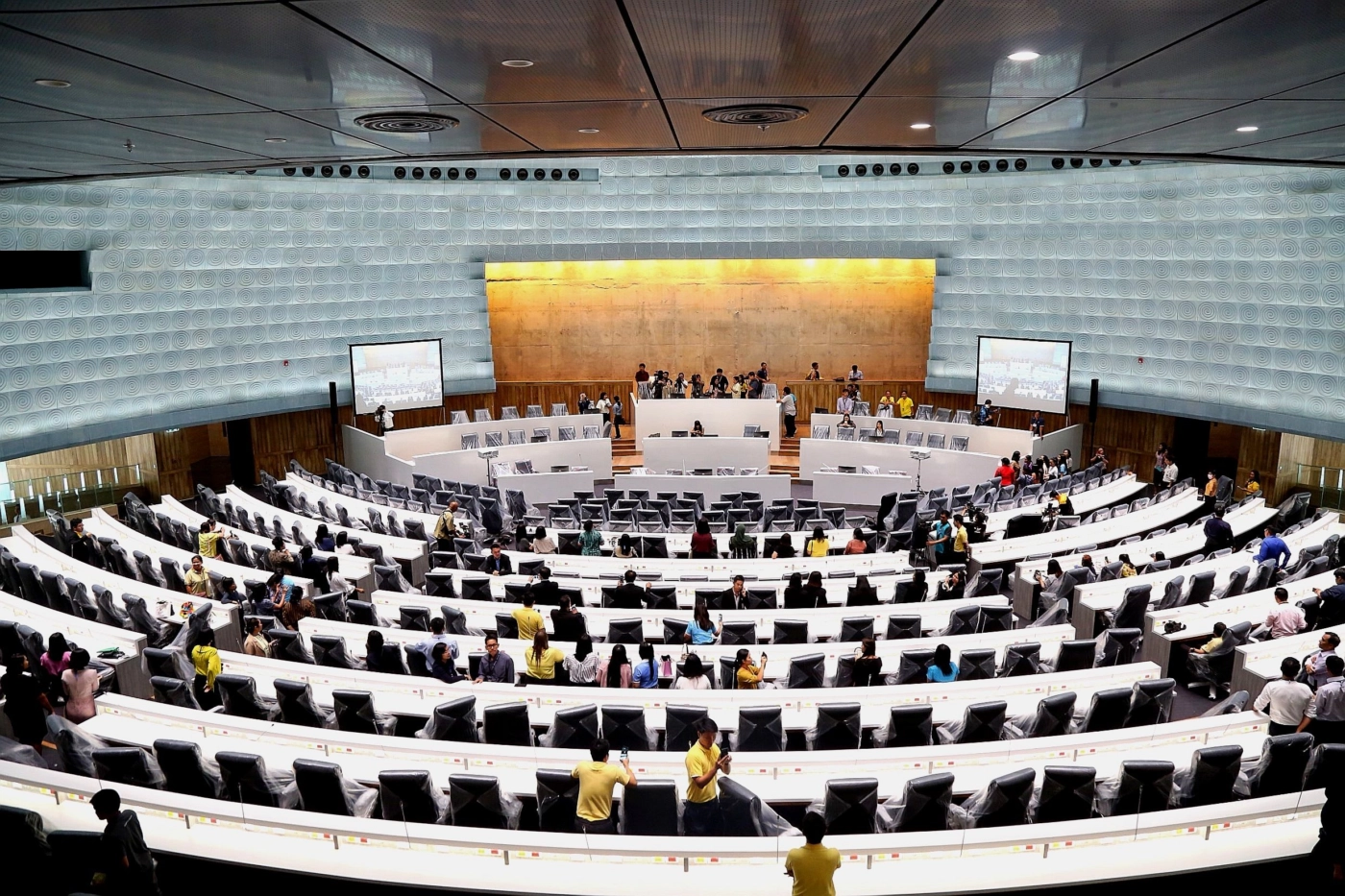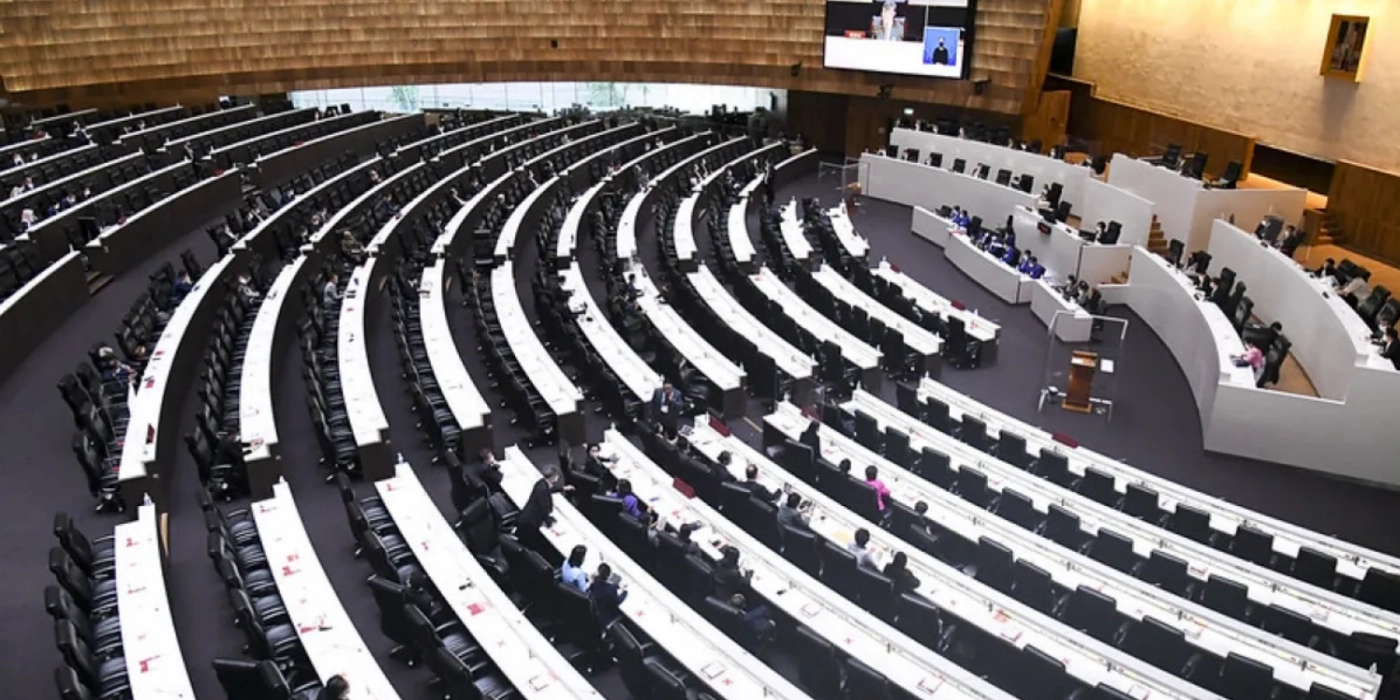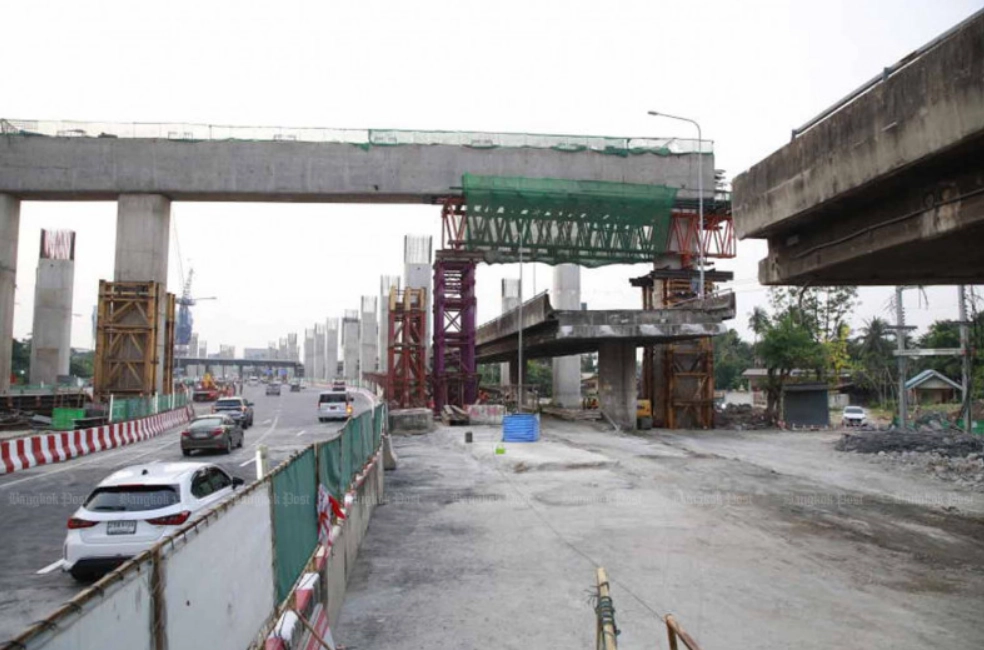Constitutional Amendment: Parliament Seeks Court Ruling on Section 256
The process of constitutional amendment is often complex and politically charged, as seen in Thailand’s ongoing efforts to amend Section 256 of its Constitution. A recent parliamentary vote to petition the Constitutional Court has sparked debates about whether a referendum is required before any amendments can be made. This decision could have significant implications for Thailand’s legal and political landscape, particularly in shaping the future of constitutional reforms.

Background on the Constitutional Amendment Debate
Amending a constitution is a critical step toward political reform, but it often faces legal and procedural hurdles. In Thailand, Section 256 of the Constitution sets the guidelines for constitutional amendments. However, disagreements over whether a referendum must be conducted before proceeding with amendments have led to legal uncertainties and political deadlocks.
On March 17, 2025, Thailand’s Parliament voted to seek a ruling from the Constitutional Court regarding whether it can proceed with amending Section 256 or if a referendum is required first. This move, initiated by Senator Premsak Piayura and Pheu Thai MP Wisut Chainarun, follows previous failed attempts to debate amendments due to a lack of quorum in a joint sitting of MPs and senators.
Why Amend Section 256?
The primary motivation behind amending Section 256 is to ease restrictions on constitutional amendments, allowing for a more democratic process in drafting a new Constitution. Proponents, including the opposition Pheu Thai Party and the People’s Party, argue that the existing constraints hinder meaningful political reform. They propose establishing an elected Constitutional Drafting Assembly to oversee the process.
However, opposition from senators and the Bhumjaithai Party has stalled these efforts. These factions argue that debating constitutional amendments without first conducting a referendum contradicts previous Constitutional Court rulings. Their stance has created further divisions within Parliament, leading to the recent decision to seek judicial clarification.
The Constitutional Court Petition and Its Implications
In a joint sitting of 572 MPs and senators, the vote to petition the Constitutional Court resulted in 303 in favor, 151 against, and 124 abstentions. The petition seeks a definitive ruling on whether a referendum is legally required before amending Section 256.
During the parliamentary debate, Wisut Chainarun emphasized the necessity of a court ruling to break the impasse, as lawmakers remain divided on the issue. One group believes that amendments cannot proceed without a referendum, while another argues that changes to procedural guidelines do not require prior public consultation.
Senator Tewarit Maneechai referenced the Constitutional Court’s 2021 ruling, which stated that only two referendums are required—one before amending the Constitution and another after completing a new draft. He warned that frequent reliance on court rulings could disrupt the balance of power between political institutions.

Diverging Legal Interpretations
Legal interpretations of the 2021 ruling vary among lawmakers and experts. People’s Party MP Parit Wacharasindhu pointed out that five Constitutional Court judges personally stated that only two referendums are necessary, while only one judge argued for three. Another judge claimed that drafting a new Constitution is not allowed at all. The Constitutional Court Office’s official infographic also does not explicitly mandate a referendum before amending Section 256.
Pheu Thai MP Chaturon Chaisaeng supported filing the petition, arguing that a clear ruling would address concerns and facilitate progress. He highlighted that many lawmakers refused to participate in the February debate due to uncertainty over whether a referendum was necessary.
Criticism and Concerns
The legal watchdog NGO iLaw, which advocates for constitutional reform, criticized the petition as a tactic to delay the amendment process. The organization noted that similar petitions have been rejected in the past, including a 2023 motion proposed by Pheu Thai MP Chousak Sirinil. That petition was dismissed based on the Court’s previous ruling that a referendum must be held once before amending the Constitution and again after drafting the new version.
Regardless of how the Court rules, iLaw predicts further delays. If the petition is rejected, Parliament will be unable to debate amendments before the current session ends on April 11, 2025. If the Court accepts the petition and rules in favor of parliamentary amendments without a referendum, delays will still occur as the ruling is unlikely to be issued before April 11. Conversely, if the Court mandates three referendums, constitutional amendments may become unfeasible within the government’s current term.
The Broader Impact of Constitutional Amendments
Constitutional amendments play a crucial role in shaping a country’s political framework. In Thailand, past amendments have influenced democratic transitions, governance structures, and the balance of power among political institutions. The ongoing debate over Section 256 reflects broader tensions between reformists seeking greater democratic freedoms and conservative factions aiming to preserve the status quo.
Comparing Thailand’s constitutional amendment process to other nations provides insights into best practices and potential pitfalls:
- United States – Constitutional amendments require congressional approval and state ratification, making changes rare but highly deliberative.
- United Kingdom – Lacks a formal written constitution, with legal changes occurring through parliamentary statutes and judicial precedents.
- Germany – Allows amendments but prohibits changes that undermine democratic principles.
- South Korea – Requires a supermajority in Parliament and public approval through a national referendum.
Thailand’s reliance on Constitutional Court rulings to resolve legislative disputes highlights the judiciary’s growing influence over political processes. While legal interpretations provide clarity, they also risk politicizing the judiciary and diminishing parliamentary autonomy.
Challenges in Implementing Constitutional Amendments
Even if the Constitutional Court rules in favor of amending Section 256 without a referendum, several challenges remain:
- Political Opposition – Resistance from senators and conservative factions could stall progress.
- Legal Complexity – Ambiguous interpretations of constitutional provisions may lead to further disputes.
- Public Engagement – Ensuring that constitutional reforms reflect public interests requires effective citizen participation.
- Timing Constraints – The current government’s term limits the window for successful amendments.
The Future of Constitutional Reform in Thailand
The outcome of the Constitutional Court ruling will shape the trajectory of Thailand’s constitutional reform efforts. A favorable ruling for parliamentary amendments without a referendum could accelerate the process, while a decision mandating additional referendums may push reforms beyond the current administration’s term.
Regardless of the verdict, the debate over constitutional amendments underscores the need for a transparent, inclusive, and legally sound approach to governance reform. By balancing legal clarity with democratic principles, Thailand can navigate constitutional amendments more effectively and strengthen its political institutions.
Conclusion
The petition to the Constitutional Court regarding Section 256 of Thailand’s Constitution marks a pivotal moment in the nation’s political landscape. As lawmakers and legal experts continue to debate the necessity of a referendum, the decision will have long-term implications for constitutional reforms. Whether the process advances smoothly or encounters further roadblocks, the ongoing dialogue highlights the complexities of governance and the importance of a well-defined legal framework in shaping Thailand’s democratic future.
See more articles:
Betting Online Site – การเลือกคาสิโนออนไลน์ที่ปลอดภัยและเชื่อถือได้
Sport Pool – ทางเลือกการเดิมพันกีฬาที่น่าสนใจสำหรับผู้ชื่นชอบกีฬา










